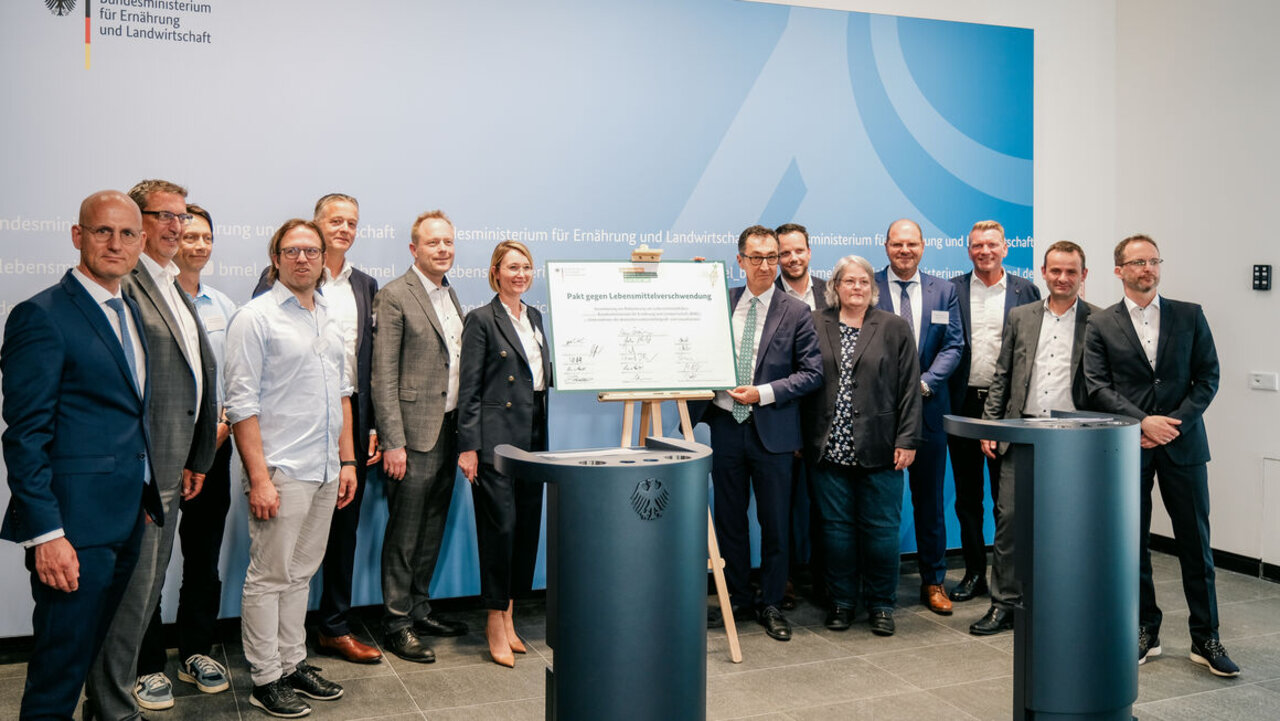Project
Monitoring to reduce food waste in wholesale and retail

Monitoring of the implementation of the Pact Against Food Waste in the wholesale and retail sector
In the summer of 2023, Federal Minister Cem Özdemir and 14 wholesale and retail representatives signed the "Pact Against Food Waste". The goal is to achieve a food waste reduction of 30% by 2025 and of 50% by 2030.
Background and Objective
As a part of the federal government’s National Strategy for Food Waste Reduction, wholesaler, retailer, scientists and politicians met from August 2019 to December 2022 to develop strategies to reduce food waste. In the Dialogue Forum on Wholesale and Retail Trade, they worked together to develop a voluntary agreement with concrete reduction targets and measures, from which the “Pact Against Food Waste” emerged in 2023.
Approach
In order to achieve the agreed reduction targets, the agreement includes both obligatory and elective measures. The obligatory measures include, among others, expanding the distribution of surplus food as donations. Of the 36 elective measures, companies must implement at least eight per year. These elective measures cover the following categories:
- Measures at the producer/supplier interface
- Internal measures in the market or online trading
- Measures at the customer interface
- Measures to improve the distribution of surplus food or food that is no longer marketable but still edible
Data and Methods
The Thuenen Institute is evaluating the implementation of this agreement. To do this, the companies use a template to provide the Thuenen Institute information regarding implemented measures. In addition, the companies provide the Thuenen Institute data on sales losses (write-off rates), food donations and the distribution of food as animal feed.
The deadline for submitting the template and the other data concerning the previous calendar year is July 1st.
Preliminary Results
The Thuenen Institute examines the company data, analyses it and publishes the summarized results in an annual monitoring report. Step by step a time series will be created that documents the success of implementation the reduction goals.
The first data transmission by the companies took place on time on 1 July 2024. The Thünen Institute analysed the data and published the first results report on the monitoring of the Pact Against Food Waste at the beginning of December 2024.
A total of 1.7% of food was sorted out as no longer fit for sale. Of these sorted out goods, a quarter were passed on as food donations or animal feed, while the remaining three quarters were disposed of.
A reduction of 24% was achieved across all companies. However, the reduction targets must be achieved in the individual companies. There is currently still a wide spread here. This means that some companies are closer to the reduction targets than others.
The participating companies implemented a total of 132 elective measures. Measures to optimise the sale of goods with short use-by and best-before dates were implemented particularly frequently. The task for the coming years is to implement measures that will further promote the reduction of food waste.
Links and Downloads
Thünen-Contact

Involved Thünen-Partners
Publications
- 0
Kuntscher M, Schmidt TG (2024) Pakt gegen Lebensmittelverschwendung im Groß- und Einzelhandel : Ergebnisbericht zum Monitoring 2023. Braunschweig: Johann Heinrich von Thünen-Institut, 47 p, Thünen Working Paper 250, DOI:10.3220/WP1730818070000

![[Translate to English:] [Translate to English:]](/media/_processed_/3/e/csm_AdobeStock_249730128_92f14d3a63.jpeg)
![[Translate to English:] [Translate to English:]](/media/_processed_/3/e/csm_AdobeStock_249730128_a6fcf4c893.jpeg)




